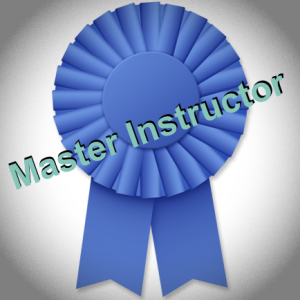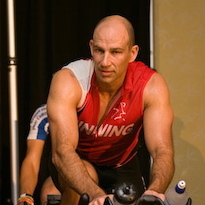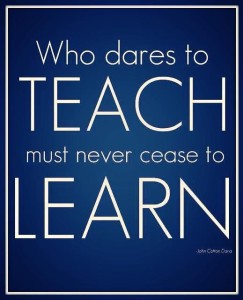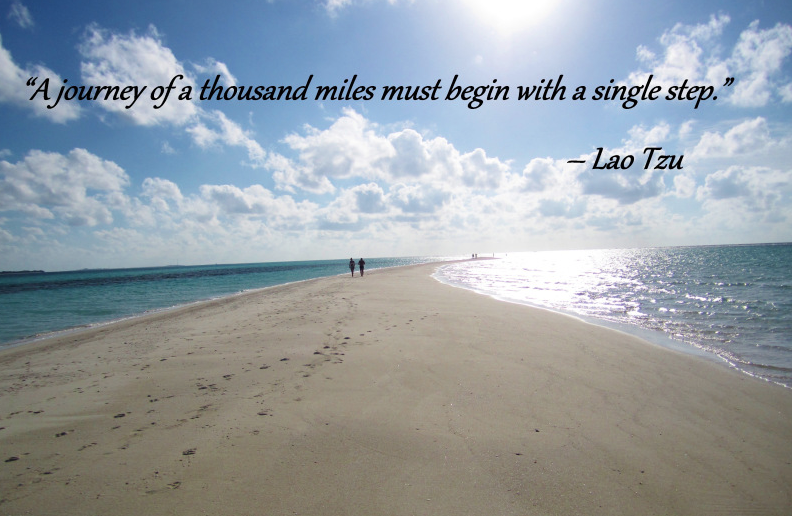Have you ever dreamed of becoming a master instructor or master trainer for an indoor cycling program (or any fitness program)? The steps to becoming an MI / MT are similar to the steps of someone who simply wants to be the best indoor cycling coach possible. In other words, even if you don’t care to present at conferences or train other instructors, if you take many of the steps outlined below, you cannot help but grow into an exceptional kick-butt coach and trainer with outstanding knowledge, success and motivational abilities!
In my many years as a master instructor (since 1997, 12 of those years with Mad Dogg Athletics and Spinning®), I’ve been asked the following question probably a few hundred times: how does one qualify as a master instructor?
The photo above is Giba Ambrogi, former master instructor for Spinning® from Brazil. I took this at WSSC 2008. I believe Giba was one of the best on the team, as he was extremely knowledgeable in all aspects of exercise and cycling science, was very amiable and super motivating, was an exceptional presenter and speaker, and he had incredible music to boot. He has a master’s degree in exercise physiology and is a specialist in biomechanics.
His level of education is higher than most MIs in the industry and is very much needed in our industry. But, a master’s degree isn’t de rigeur…you just need to be passionate about learning and seek out the best means for expanding your knowledge that is relevant to what you need to know. Far too many master instructors have only a cursory level of understanding of exercise physiology. Don’t be one of them!
First, let’s answer the following question:
 What is a Master Instructor or Master Trainer?
What is a Master Instructor or Master Trainer?
(Note: Some programs use the term master instructor, some prefer master trainer, and others master presenter, but for the sake of simplicity, I’ll use MI for the rest of this article, since they are all the same thing.) An MI is not something someone self-appoints themselves as. An MI is a trainer to the trainers; they teach other people how to be instructors, whether it’s through an indoor cycling program, Bosu, Zumba, Pilates, or many more. It has been a term in the fitness industry (and others too, such as martial arts and even the military) for many years, so any self-appointment, or claims to be an MI when they don’t train or certify other instructors, goes against common usage and is bogus.
What Should You Do To Become a Master Instructor (Or Just a GREAT Indoor Cycling Coach)?
Keep in mind that each program has their own criteria on what they are looking for, and to be honest, the opportunities do not present themselves very often. Mad Dogg Athletics seems to have more Spinning master camps than any other, but that also means it’s harder to get work once hired as an MI since there are so many of them.
Some programs may require a higher level of certification and more education than others. I believe that the strength of a program—and by extension, the strength of our industry—depends highly on the expertise and excellence of the MIs training other instructors.
I am impressed with the criteria used by Schwinn and Stages Cycling for their MIs, as well as the SpinPower program. As stated above, you do not have to have a master’s degree in exercise physiology to be a master instructor; however, it’s most impressive when the programs themselves are written and/or managed by someone with a master’s degree (which is also the case with RealRyder), and when there are several on the team with this level of education. This raises the level of the entire program.
I believe that anyone who wants to become an MI for any indoor cycling program should have excellent knowledge in the following important areas:
- Exercise science. You need more than basic knowledge—as I mentioned above, I see far too many who are lacking in this area. Remember, MIs are educating our future instructors, so the future of our industry is riding on this. You better be able to answer some of the most challenging questions on exercise science (what causes acidosis, aerobic and anaerobic processes on a cellular level, what exactly is lactate threshold and how is it improved, muscle physiology, etc.), because you’re going to get them! .
- Cycling science. This includes technique, biomechanics, and power output. The science behind cadence, force, and power. Even if you won’t be teaching about power, you should understand power output, because it drives what we are doing whether you measure it or not.. That also means you really should be a cyclist. Not an elite cyclist, of course; just someone who rides bikes and understands the outdoor connection with indoor cycling. If your current living situation makes it hard to be a cyclist (living in a metropolitan area), then at least find ways to experience riding a bike up a hill, pedaling very quickly, experience different gears, and noticing the similarities and differences with indoors. This may mean traveling somewhere to rent a bike, maybe even hire a coach for a day or two.
- Excellent motivational and inspirational ability. You must be able to motivate intrinsically, not just extrinsically.
- Presentation skills. Yes, imagine yourself onstage as a TEDx presenter! Can’t imagine that? Then start now with small presentations to clients, members, and friends.
- People skills. You must be likable, take an avid interest in people, and know how to interact well with everyone, both one-on-one and in groups.
So with that in mind, here is a list of things to start doing if you want to one day become a master instructor, and/or simply a kick-butt indoor cycling coach of the highest level. I highlight that last part because it is what I hope for each one of you!
- Education: Get more! Never stop learning. You will need to go deeper than the education you find at standard fitness conferences. Why? Because the level of education of the presenters and all top coaches is much more than the content they are teaching to average instructors at conferences. Many of these sessions are watered down to appeal to a wide range of instructor knowledge, which sometimes can be pretty low. This may mean going to conferences targeted more towards science (e.g., ACSM).
- If you’re going to pay to learn from an online source, make sure the contributors are highly qualified in exercise and cycling science (or their respective topic that is relevant to you as an instructor) and have years of experience. That is what you will find here at ICA. I’ve looked at a couple of providers online, from videos to blogs to membership sites, and I am dismayed at the lack of credentials some of them have. Just remember, anyone can sell anything online!
- If you can afford it, try to obtain several higher level certifications beyond your basic Spinning® or other indoor cycling certification.
- I also recommend getting certified in more than one cycling program.
- Consider getting your Level 1 USA Cycling coaching cert as well (or equivalent in your country). Those credentials look great after your name and show your commitment to the cycling aspect of indoor cycling.
- Read, read, read. Read about exercise science, read about cycling science. Read about the psychology of motivation. Read about mental strength and coaching. And if you don’t have time to read a dozen books, join ICA, because we’ve read all that stuff and use it in our education! (Note: We still recommend you read more, even as a member, especially if you want to be an MI one day. We will just provide you with the most relevant information to help you on your path. That alone will save you many hours!)
- Listen to podcasts on cycling science. (Check out Ask a Cycling Coach by TrainerRoad.)
- Become a MASTER at motivational cueing. ICA can help you do that. We have dozens of articles that give you everything you need to be a more inspirational coach. Our profiles come with incredible cues that match the message of the workout, and many of our articles provide dozens of cues that will raise your level of coaching to 5-star level! Or, ready every book on coaching you can get your hands on.
- If you are challenged with public speaking, join your local Toastmasters. It is essential for you to you gain experience speaking in front of large groups. This will help you in front of your regular students too.
- Start mentoring new instructors. This is a fantastic way to learn how to help them through their growing process and understanding their needs, a skill an MI should have.
- Find a mentor. You may have to pay for one. Because it’s a time-consuming process, some high-level fitness presenters with many years of experience have started paid mentorship programs. Like paying for good education or coaching, it’s worth it if this really is a dream of yours. It’s no different than paying a coach to help you with anything else you really want to do. There’s certainly no guarantee because they aren’t the ones doing the hiring…but it may be worth it.
- Ya gotta pay your dues! Volunteer at conferences/workshops, even if you are just a door monitor or move bikes. If you can’t afford a lot of conferences, this is a great way to not only attend more and learn more, but if you’re serious about being an MI someday, this also serves to get your face known. Start rubbing elbows with the MIs in the industry. Many organizations often hire people they already know and trust.
- Find the MIs from various programs you respect online; follow them on Facebook, Instagram, Twitter and LinkedIn, subscribe to blogs they contribute to. Then post intelligent comments and ask relevant questions. If you liked an article they wrote in an online journal or on their program’s Facebook page, leave a nice comment. Believe me, most of them will see these if they are savvy at social media. This is a highly social world we live in and you should use social media to your advantage. The smart MIs are doing it too. It can help you be known in the industry, and allows people to know and trust you.
- Join and contribute to industry Facebook groups. The more you do the above suggestions (learning and growing, attending conferences, etc.), the better you will be able to give wise advice to instructors. This experience is invaluable. When you can provide good advice in a level-headed way, you will be noticed, mark my words!
- Start a blog! It’s really a great way to gain experience writing content, sharing your ideas, getting yourself recognized, and gaining confidence. If you write well, consider submitting your articles to fitness journals, local newspapers or online magazines. Every single time you get published, it’s another feather in your cap. You want to start gathering a lot of feathers!
Gaining the skills and experience that would qualify you to apply to be a master instructor at any program or organization won’t happen overnight, but if you don’t start now, how will you ever get to where you want to go? In the process of learning and growing, you might discover some wonderful things about yourself! The biggest benefit, in my opinion, is that you will be living your passion, and in the process, having an even greater positive impact on your riders.




I have been teaching for over 12 years: I am an Elite instructor ( star3 Madd Dogg). I am currently teaching at 24 Hours Fitness at different locations ( New Jersey & New York). Check my LinkedIn for my bio.
I am interested in starting to ride outdoors but dont have any eartthly idea how to go about it? last time i rode a bike outside i was like 10…
Yes Bryon, you are so right! There is a high density in some areas and a low density in others. My personal feeling (and the feeling of many other MIs within the team while I was still there) is that Spinning has too many MIs. No other program has anywhere near the number of MIs on their team (it’s not double or triple…it’s waaaaaay more than most programs). While their reason for the large pool is to reduce travel costs, which I do understand, it also means that some of the MIs do not get nearly the experience, work and opportunities they want or should be getting. That means they may only present a certain CED once every few years, which means they have to relearn it every time. Quality can fall as a result. It also means opportunities to present at conferences are fiercely competitive (and that to me is the icing on the cake of being an MI). A whole bunch of us had long discussions with MDA about this back in the early to mid-2000’s, but nothing really changed.
My husband, ever the pragmatist and wise businessman, used to tell me, “you pay THEM to work for them” every time I traveled for MDA, between prep time, travel time, lost clients/classes (opportunity cost), low remuneration and not being reimbursed for all expenses. I didn’t care I guess (until the last few years), it was a labor of love and passion that I maintained for 12 years!
Instructors who are thinking about trying out as a Master Instructor need to know both the positives and the negatives so they can make an informed decision—it would be wrong to think that it was all glory. There are many, many incredible positives, not the least of which is doing what you love and are passionate about, and having a really great affect on the instructors you train! Just be prepared that there are some challenges you may not even consider. I’d be happy to share privately with anyone who needs to know the ins and outs, just email me.
But like many things in life, often the positives far outweigh the negatives. I say, go for it if you can, and start with many of the steps outlined in this article. The top two (IMO) are knowledge and passion.
Languages are another good point, Bryon. Especially fluency in Spanish.
Nice article Jennifer, I think you have solidly outlined the path for becoming an MI. I know my path was a little unconventional, and perhaps longer than many MIs, but I certainly recognize the need for having solid knowledge in the areas of exercise and cycling science, along with the skills to present, motivate and inspire.
A couple of points that I think would be advantageous along with the previously mentioned items would be:
Being fluent in several languages. Having additional language skills can be a huge door opener for a prospective MI. Many foreign MI opportunities exist, but there are not often enough qualified MIs with the necessary language skills. I have seen in practice where perhaps some MIs got the gig in large part to being able to speak multiple languages while perhaps not having as strong presenting skills or knowledge in the areas of the sciences. Non english markets need MIs so having some language skills is a strong plus.
Also your chances of being selected to be an MI can be enhanced or reduced based on your geographic location. For example here in Southern California, and in other places like Northern California, Denver / Boulder CO, Miami FL and Austin TX you will find a very dense population of MIs, where in other parts of the USA or the world the MI population is much thinner. I have seen some MIs get the nod in large part to being geographically desirable (along with the appropriate skills and experience). I have also seen MI candidates not get the nod due to being in a market that already has several MIs in close proximity.
-bryon